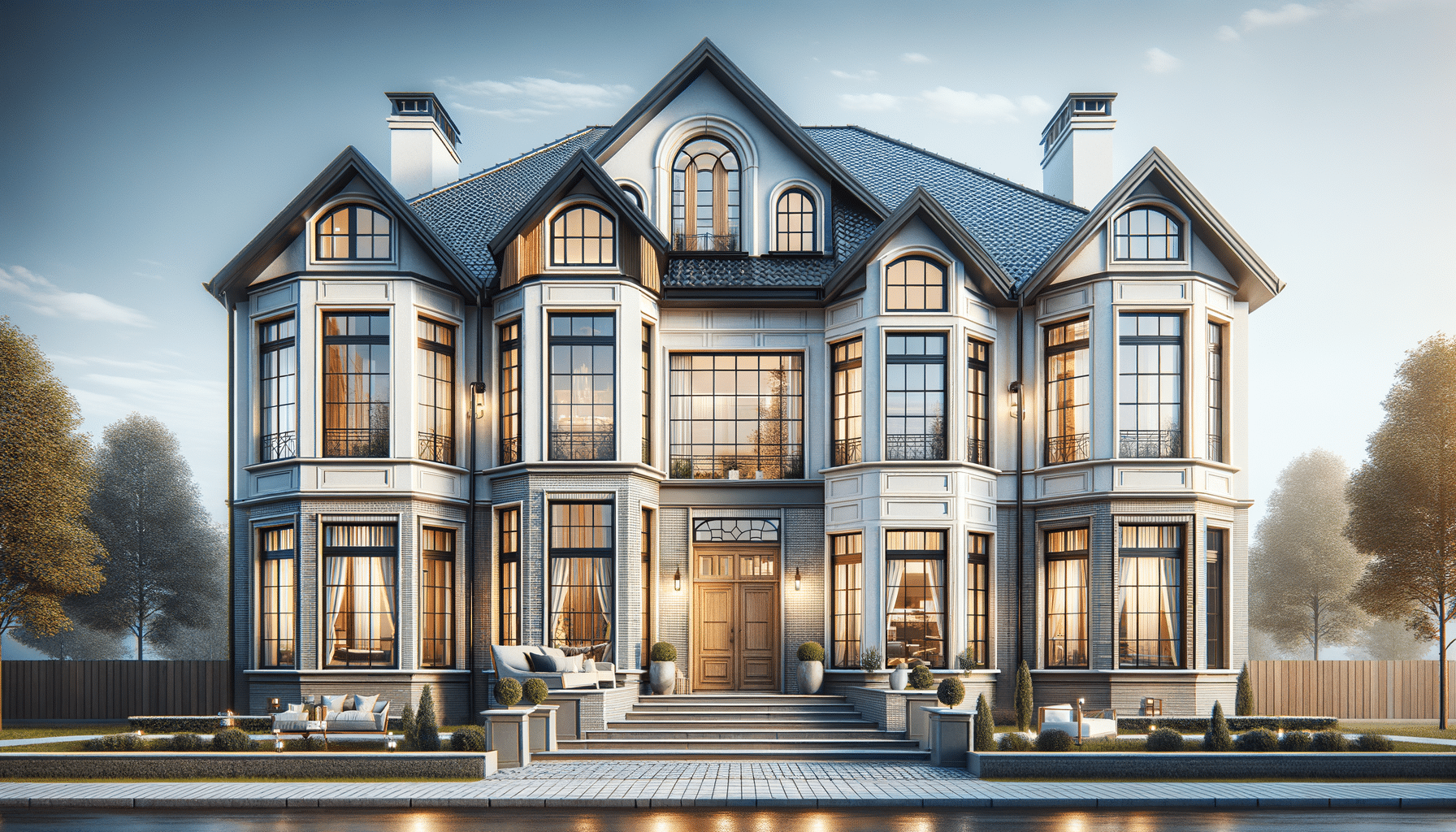Upgrade Homes with Durable and Stylish Windows
Enhance energy efficiency and curb appeal with high-quality windows. Explore designs that combine functionality with aesthetics for a brighter, more comfortable living space.

Introduction to Windows in Home Design
Windows play a crucial role in home design, offering not just a view to the outside world, but also influencing the comfort, energy efficiency, and aesthetic appeal of a space. Choosing the right windows can significantly enhance both the functionality and the appearance of a home. As homeowners seek to improve their living spaces, understanding the different types of windows and their benefits becomes essential.
Windows have evolved from simple openings to complex structures designed to provide insulation, security, and style. They are an integral part of a home’s architecture, affecting light, ventilation, and even the overall energy consumption. This article delves into the world of windows, exploring their durability, quality, and how they can be a game-changer in home improvement.
Understanding Durable Windows
Durability is a key consideration when selecting windows, as they must withstand various weather conditions while maintaining their integrity and appearance. Durable windows are designed to last for many years, providing reliable protection against elements such as wind, rain, and temperature fluctuations.
Materials play a significant role in the durability of windows. Options such as vinyl, fiberglass, and aluminum are popular for their resilience and low maintenance requirements. Vinyl windows, for instance, are known for their resistance to moisture and rot, making them an excellent choice for areas with high humidity. Fiberglass windows offer exceptional strength and thermal performance, while aluminum windows are valued for their sleek appearance and resistance to corrosion.
When considering durable windows, it’s important to look for features such as reinforced frames, high-quality seals, and impact-resistant glass. These elements contribute to the window’s ability to withstand harsh conditions and extend its lifespan, ensuring that your investment is protected over time.
Evaluating Quality Windows
Quality windows are characterized by their superior construction, materials, and performance. They not only enhance the aesthetic appeal of a home but also provide significant energy savings and comfort. When evaluating the quality of windows, several factors should be considered.
Firstly, the type of glass used in windows is crucial. Double or triple glazing can significantly improve insulation, reducing energy costs by keeping heat inside during winter and outside during summer. Low-emissivity (Low-E) coatings further enhance energy efficiency by reflecting heat while allowing light to pass through.
The construction of the window frame also impacts its quality. Frames made from composite materials often offer the best combination of strength, thermal performance, and aesthetics. Additionally, quality windows typically include features such as multi-point locking systems for enhanced security and tilt-and-turn mechanisms for easy cleaning and ventilation.
Investing in quality windows not only boosts a home’s value but also contributes to a more sustainable living environment. By reducing energy consumption and improving indoor comfort, quality windows are a wise choice for any homeowner looking to make a long-term improvement.
Design and Aesthetic Appeal of Windows
Beyond functionality, windows are a key design element that can dramatically alter the look and feel of a home. The right windows can complement architectural styles, enhance curb appeal, and create a cohesive interior design.
There are numerous styles of windows to choose from, each offering unique aesthetic and functional benefits. Casement windows, for example, provide a classic look with their hinged design, while sliding windows offer a modern touch with their sleek lines. Bay and bow windows create a sense of space and light, making them perfect for living areas.
Customization options such as frame colors, grille patterns, and hardware finishes allow homeowners to tailor windows to their personal taste and the overall design scheme of their home. By carefully selecting window styles and features, homeowners can achieve a harmonious balance between form and function, enhancing both the interior and exterior of their home.
Conclusion: Choosing the Right Windows for Your Home
In conclusion, selecting the right windows involves a careful consideration of durability, quality, and design. By understanding the materials and features that contribute to a window’s performance, homeowners can make informed decisions that enhance their home’s functionality and aesthetic appeal.
Durable windows ensure long-term protection against the elements, while quality windows offer energy efficiency and comfort. The design of windows can transform a home’s look, providing a stylish and cohesive appearance. By investing in windows that meet these criteria, homeowners can create a living space that is not only beautiful but also efficient and sustainable.
Ultimately, the right windows can elevate a home’s value and livability, making them a smart investment for any homeowner looking to upgrade their space.